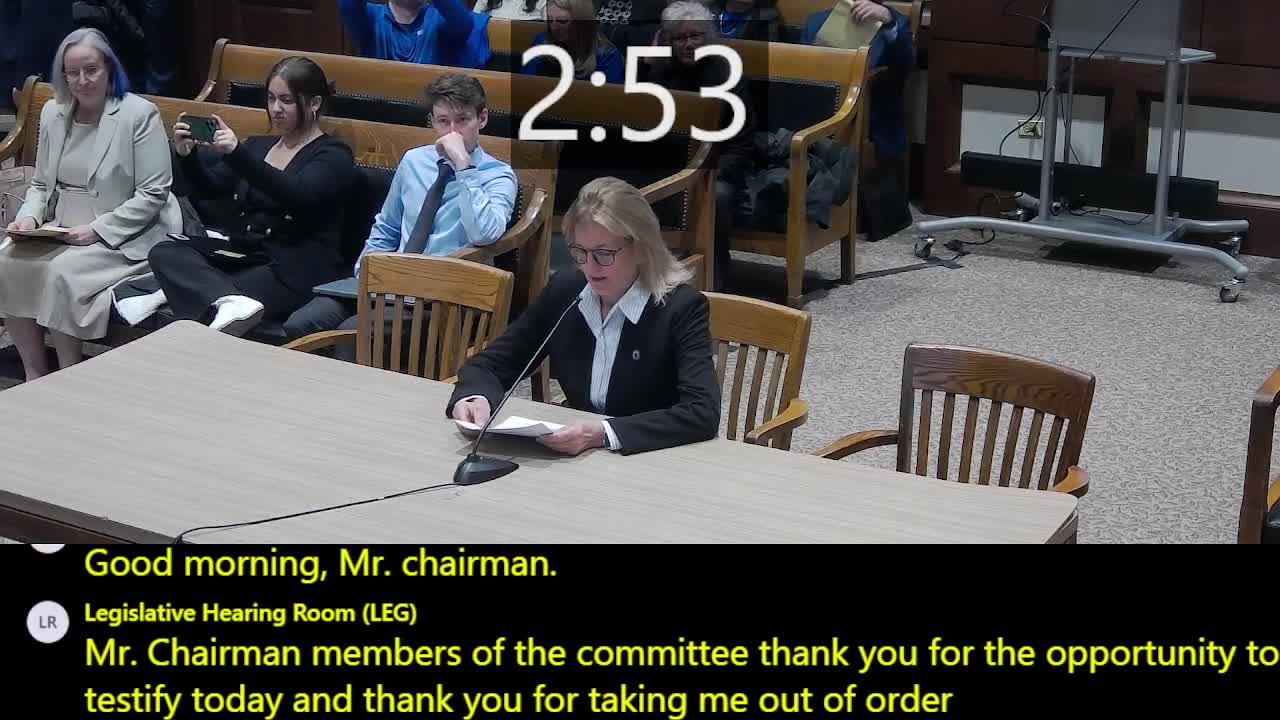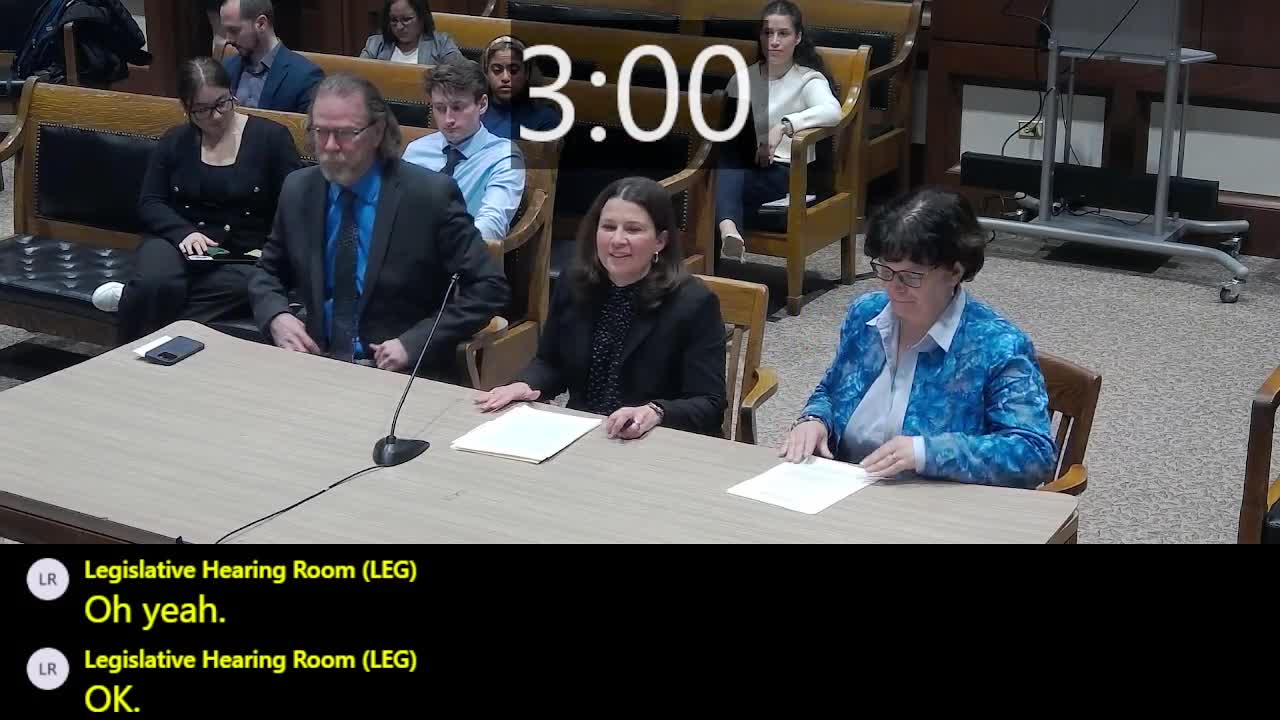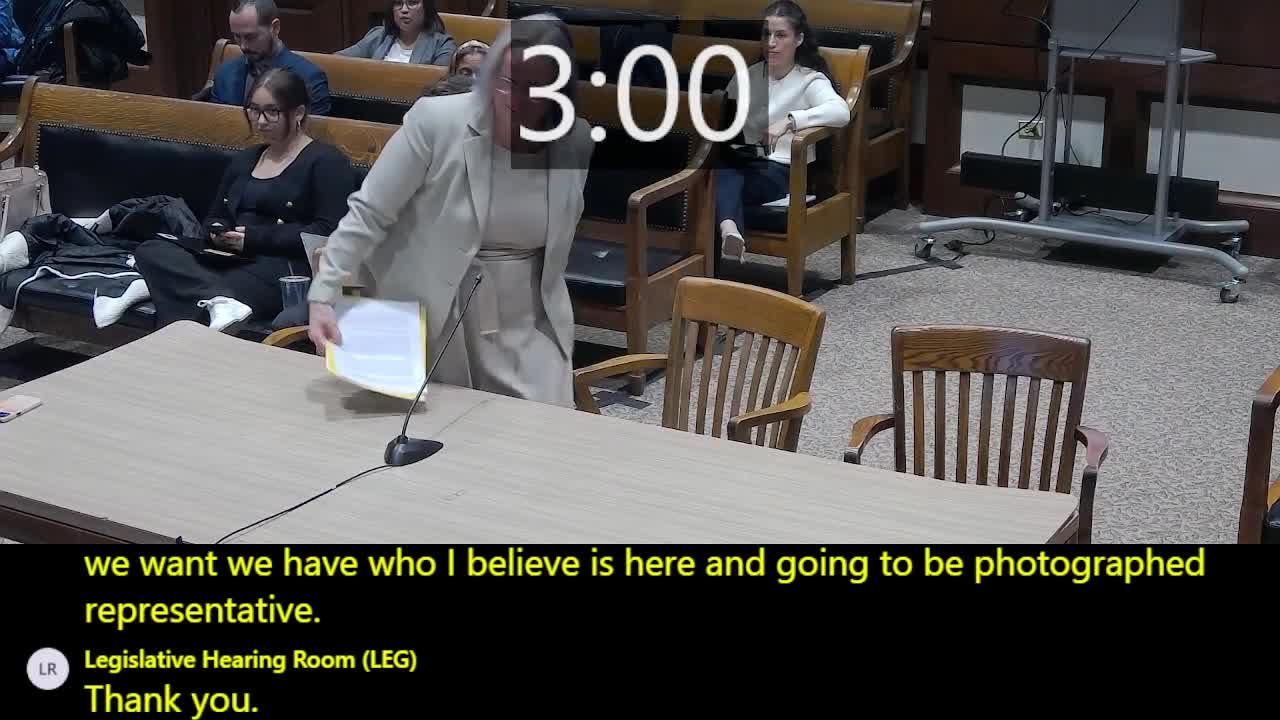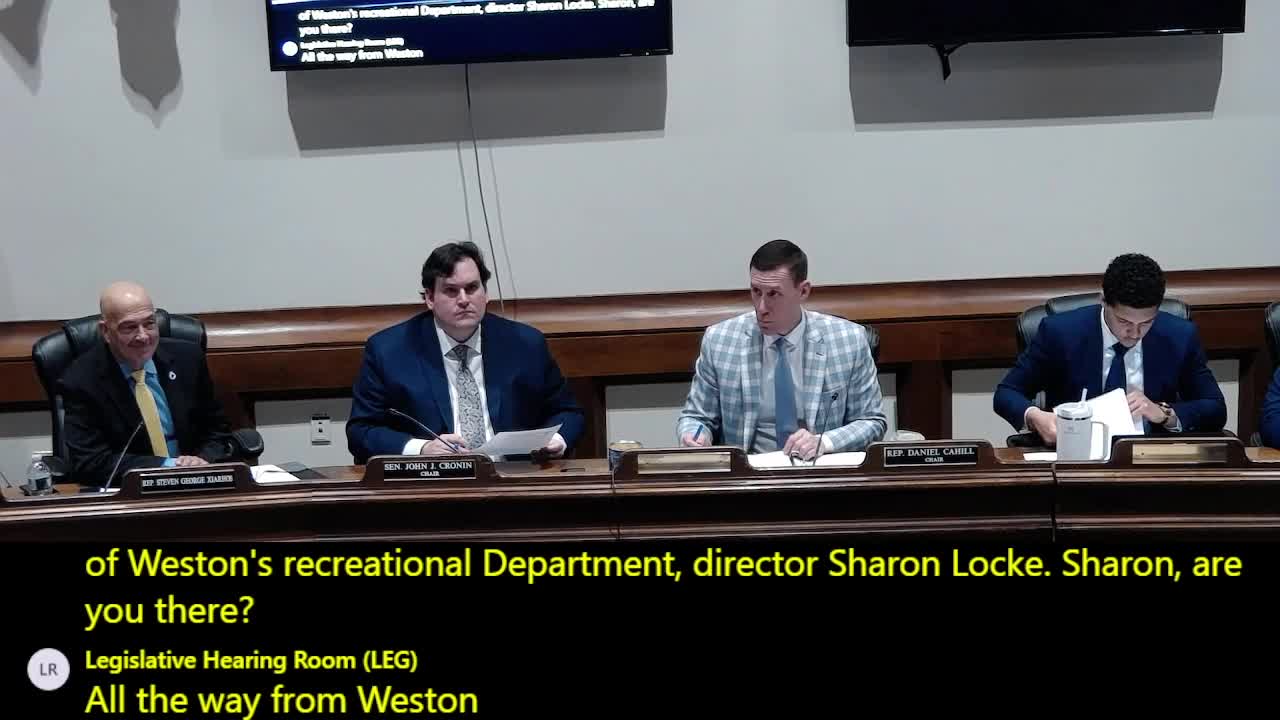Article not found
This article is no longer available. But don't worry—we've gathered other articles that discuss the same topic.

Mass. hearing spotlights S.1718 to require hospitals to adopt workplace-violence prevention programs

MOSES asks lawmakers to restore forensic‑scientist representation on Forensic Science Oversight Board

Panel urges primary seat‑belt law, rear‑facing child‑seat rule and lap‑shoulder belts on new large school buses

Witness urges changes to 9‑1‑1 disability‑indicator form to include mental‑health and language access

